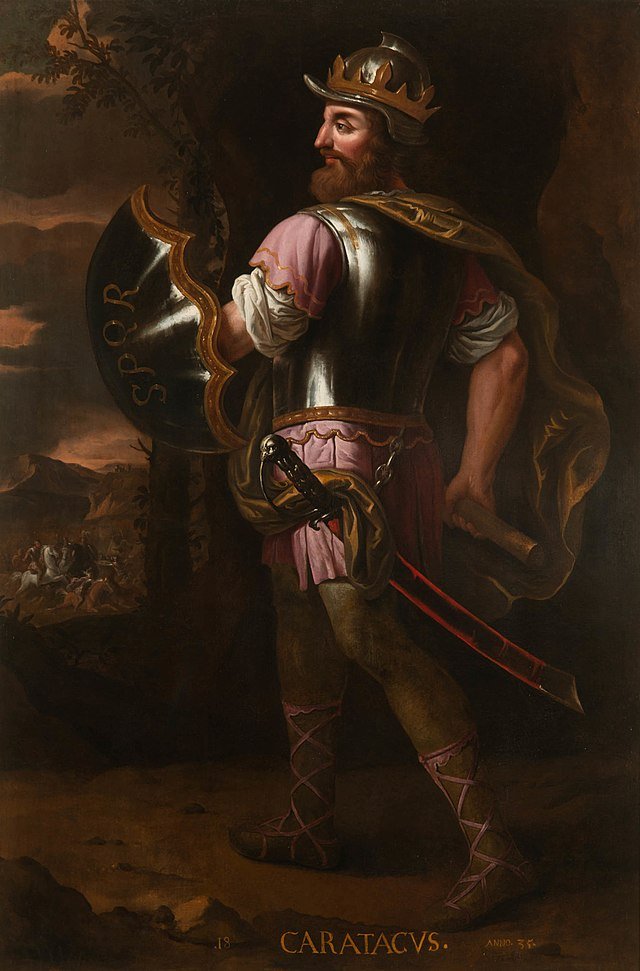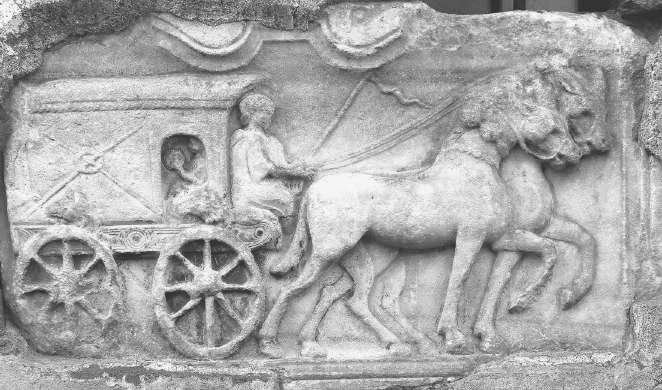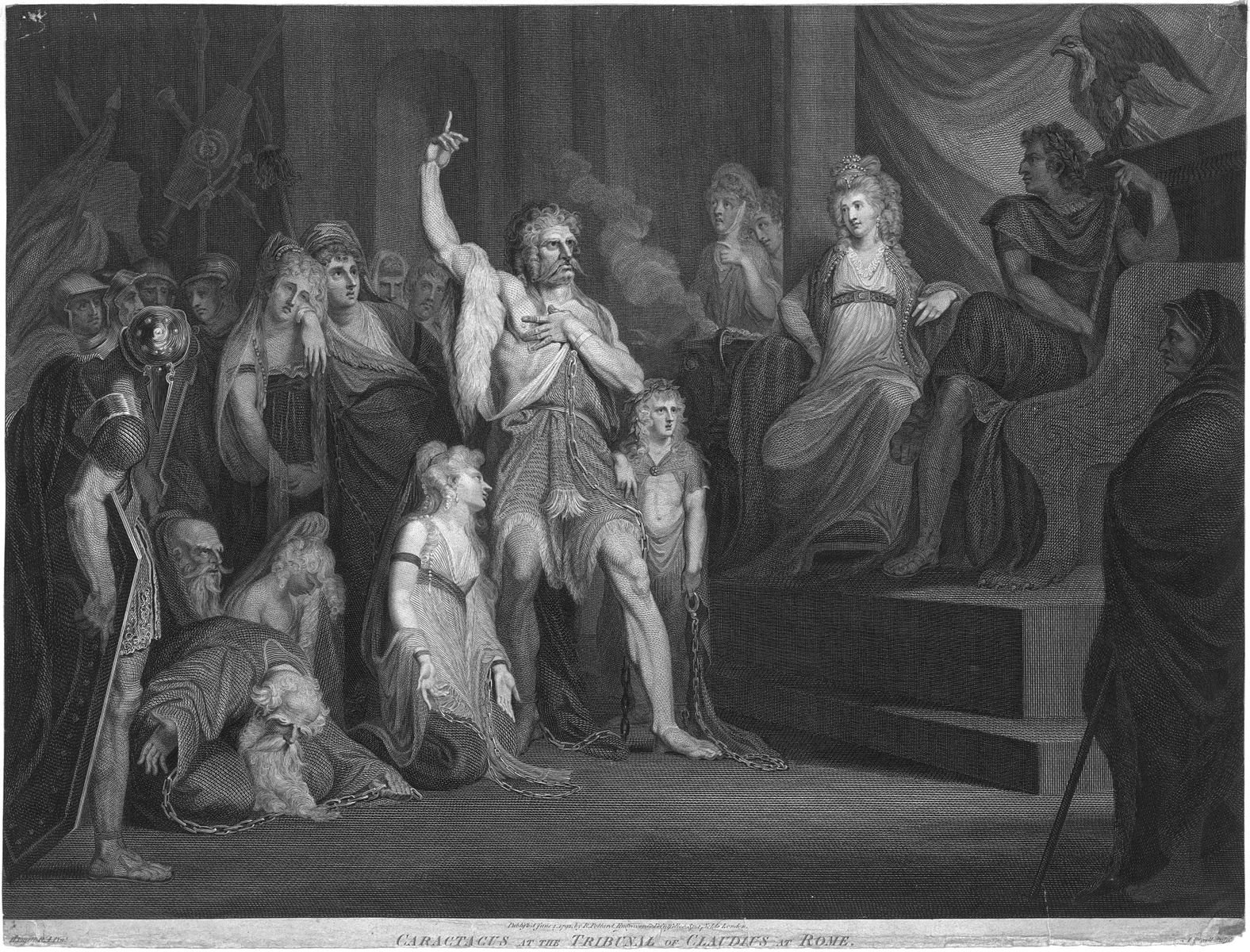Roman Roads and the Invasion of Britain: Christopher Hadley (51 ad)
Christopher Hadley - author of The Road
Nothing symbolises the might of imperial Rome like their roads. Expertly engineered and perfectly cambered, they were the arteries of the empire through which merchants, armies and information flowed.
In Britain, many of them survive as a ghostly outline beneath our modern system of highways, Watling Street to the north of London is now the A5, to the south, it forms the A2 to Dover. Others though, have been lost, fallen out of use over the centuries, been ploughed up and forgotten.
*** [About our format] ***
In this episode we will follow one of those lost roads back through time to the very beginning of the Roman occupation of Britain, in the company of the writer Christopher Hadley. He takes us back to 51 AD, a turning point in the invasion, when Caratacus, King of the Catuvellauni Tribe and leader of the British resistance, was defeated and capitulated to his Roman adversaries.
This map shows (in bold) the site of the particular road that features in Christopher Hadley’s new book. Also plotted are the many other Roman roads, including the great Fosse Way.
By the time of Caratacus’s fall the Roman invaders were already busy surveying southern Britain and building a 2000-mile road network, creating the infrastructure that would enable them to rule with relative ease.
Hadley shows us that the English countryside is full of clues to the past, if you know where to look. Shards of pottery, coins, re-cycled stones and unusual plants – we are surrounded by layers of history, it is up to us to gently peel them back and see what they divulge.
Hadley explains how much Roman roads can reveal about that period, and the impressive feats of engineering that went into constructing a route like the Fosse Way which stretched for hundreds of miles from Exeter to Lincoln, in an almost straight line.
Given all of this, it is perhaps understandable that when some of Caratacus’ fellow Britons saw what the Romans could do for them, they decided that co-operation was the best course of action.
***
The Road: A Story of Romans and Ways to the Past by Christopher Hadley is out now.
*** Listen to the Podcast ***
Show Notes
Scene One: Somewhere on the English/Welsh border - Caratacus’ last stand.
Scene Two: Somewhere in northern England - Cartumandua hands Caratacus over to the Romans.
Scene Three: Somewhere in Rome - Caratacus appears before the Emperor Claudius who grants him clemency.
Memento: A rare Caratacus coin.
People/Social
Presenter: Violet Moller
Guest: Christopher Hadley
Production: Maria Nolan
Podcast partner: Ace Cultural Tours
Theme music: ‘Love Token’ from the album ‘This Is Us’ By Slava and Leonard Grigoryan
Follow us on Twitter: @tttpodcast_
See where 51 AD fits on our Timeline
About Christopher Hadley
Christopher Hadley is a journalist and author who has written for a wide range of publications including the Guardian, The Times, the Independent, London Review of Books, Esquire and his local parish magazine, amongst others. His acclaimed first book, Hollow Places, was a Times Book of the Year. The Road, A Story of Romans and Ways to the Past was published recently.
Featured images
Caesar's boat is pulled to the shore while his soldiers fight the resisting indigenous warriors
Caractacus at the Tribunal of Claudius at Rome
An example of a LIDAR map (as discussed in the episode) of an area of Cambridge, UK
Complimentary episodes
Alfred the Great and the Vikings: Michael Wood (878)
In this episode we travel back to the ninth century to witness one of the major turning points in English history. Our guide is one of Britain’s best-known historians.
The Road to Ravenna: Judith Herrin (500)
In 500 AD most Italian cities like Rome and Milan were sliding into decline. In stark contrast, Ravenna, a coastal city to south of Venice, was on the rise. Judith Herrin tells us why.
Hypatia and The Darkening Age: Catherine Nixey (415)
In this episode of Travels Through Time, Catherine Nixey, author of the international bestseller The Darkening Age, guides Violet Moller back to the ancient city of Alexandria in the year 415.
Journey into Deep London: Tom Chivers (62 AD)
In this episode we visit London in 62 AD, barely twenty years after it was first established by the Romans, to traverse its lost landscape and hidden waterways.












